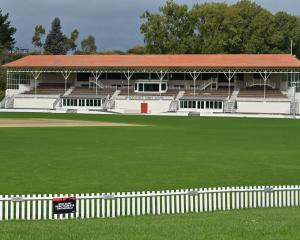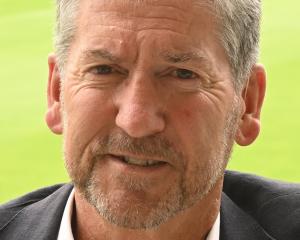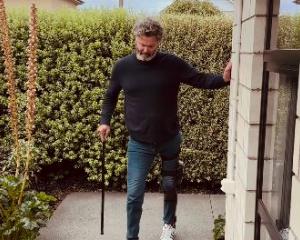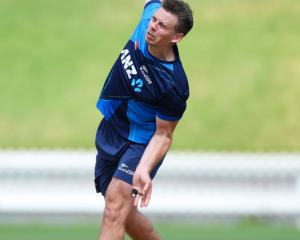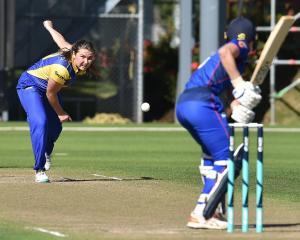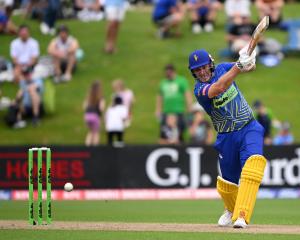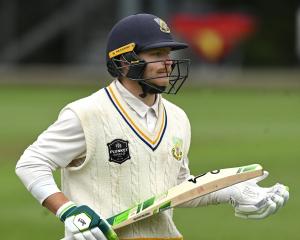
It's hard to believe it’s over but it is.
The years of being able to come home and watch the first hour of a cricket test, especially the first hour of the first test; to listen to commentaries from my favourite radio people; the analysis from Smithy, Coney, and the like. It’s hard to believe its over.
It began on a lazy South Canterbury afternoon at St Andrews domain somewhere in the middle of the 1950s, when my father took nine for 29 playing for Pareora against a Timaru team — was it Star or Old Boys or some other team? The men wore white, the ball was red.
Mum said when I came home, I was about two inches off the ground — my Dad had taken all those wickets! Dad, who turned 18 in 1939, had a different life to mine. I often wonder what his cricket career might have been without the war.
So, I practised and practised, hitting a ball against the steps at Springbrook school, imagining playing in test matches, I followed the New Zealand team through England in 1958 with a scrapbook and, after the tour, met John Ward, one of the wicketkeepers.
My hero was Bert Sutcliffe. When we shifted to Dunedin and I saw Bert Sutcliffe score a century at Carisbrook, my cup indeed was full — I’d always be an Otago man from that time on. Later, it overflowed during that incredible series in South Africa in 1961-62 to include Frank Cameron, JR Reid, and all the others.
I played the game as much as I could; I so wanted to be a good cricketer. But the gene seemed to pass me by.
I remember playing for Otago Boys’ on the day JFK died. I scored six in the morning (one shot) and four in the afternoon at Mosgiel. Oh dear! I still see in my mind’s eye the headline in the Evening Star ‘‘Kennedy Assassinated’’ as I boarded the train to go back to Dunedin.
The family then moved to Collingwood, in Golden Bay, where in two games against neighbouring Takaka District High School I managed to take seven wickets in both games. However, I really wanted to be a batsman. One of the delights of that year was a game in which Dad and I bowled the Collingwood men’s team to a win over Takaka. That year South Africa toured and listening to the test match commentaries was such a good experience.
After two years at Nelson College with the odd small success for the second XI, it slowly dawned on me, I wasn't going to emulate my heroes. And this, despite scoring a century when I was 16. I was going to be an average, probably below-average cricketer. But that didn’t stop me listening to the commentaries, being fascinated by statistics, extending my list of heroes and eventually watching cricket on television.
For the next 40 or so years, I played cricket, coached, and managed teams (coaching being a rather loose word). I coached, played alongside, and watched our sons play. I even coaxed our daughters to at least try the game. Our older daughter, Rebekah, could bowl a mean leg-spinner. Otago and New Zealand cricket came to mean so much.
February 6, 2001 was a red-letter day: our youngest son, Bradley, made his debut for Otago and took six wickets. Some parents have to live out their dreams through their children. This began an intense period of living out my hopes and dreams through him. Thanks Bradley.
All the while I’d followed test cricket wherever it was played. I had particular favourites in Gary Sobers (saw him bat five balls for a duck in 1969), Jack Alabaster, Gary Bartlett, Sachin Tendulkar, Richard Hadlee, Glenn Turner, Vic Pollard, Derek Randall and Martin Crowe — an eclectic and representative sample. For some reason there are no Australians on that list.
Great test matches, the rise of one-day cricket, not such a fan of 20-20 but it seems to have found a place. Watching careers rise and fall. All this came to me through television and radio with the odd game of significance in Dunedin ... the Pakistan test match, 1985, what a finish!
As my injured (not that ACC apparently understands what injuries are) knee prevents me running and my shoulder prevents me bowling and throwing, I’ve become a spectator, still loving the game, and hoping that the genes in our Kiwi-Australian grandchildren and 4-year-old Charlie in Dunedin will produce yet another generation of cricket tragics (he plays a mean cover drive).
As far as following the fortunes of the Black Caps on TV and radio, that’s history. Like all fixed-income people, I have to make spending decisions and who would ever want to watch cricket on a cell phone (apparently some do).
So, sadly, my love affair with cricket, brought to me through radio and TV, which had such a memorable beginning, is over.


